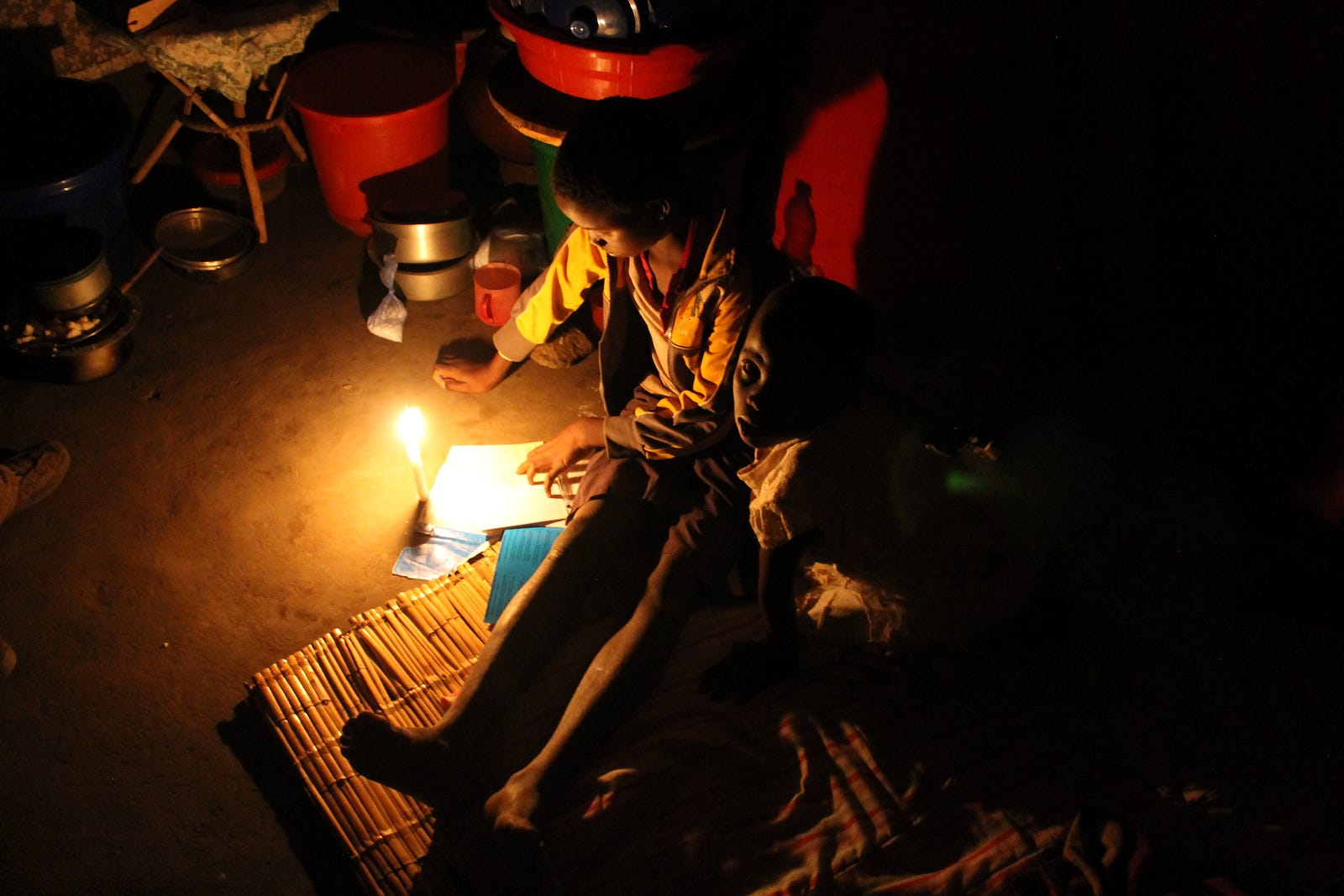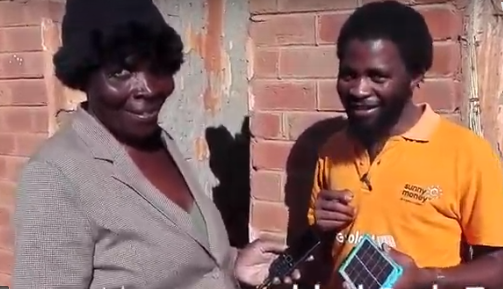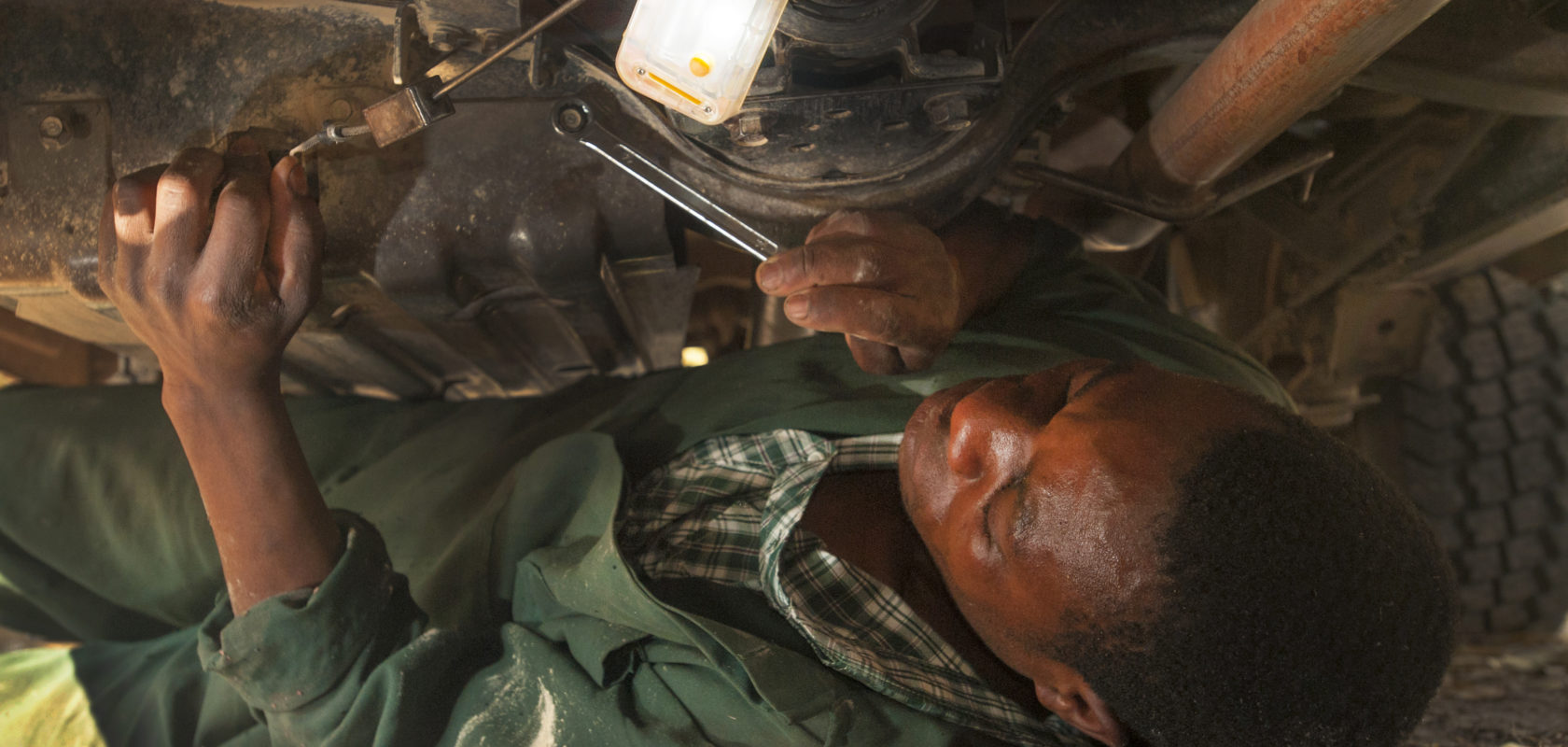Response to The Economist

The title of this article should be an obvious, non-contentious, statement. However, in an article published in The Economist on 7th February, entitled ‘Electricity does not change poor lives as much as was thought,’ there are a number of fairly sweeping assertions which question the value of access to electricity and clean, safe, lighting. The article includes statements such as:
‘Rushing to illuminate the world is a bad idea ’ and ‘…there is little evidence of….electricity and light truly transform (ing) people’s lives’
On reading the article, you get the sense that the author is looking at the issue with a limited lens and is actually questioning the importance of electricity in fighting poverty. This is a dangerous takeaway. It is certainly not consistent with what customers across Africa have been telling us for years at SolarAid and SunnyMoney.
Here are four reasons why:
1. Poverty is not just about money
Well, poverty is about money…but it’s also about ‘Living standards, ‘Limited Opportunity,’ ‘Lack of Choice’ and ‘Darkness’ — not having your day cut short at 6pm everyday when the sun goes down.’
If you have to burn candles or kerosene for lighting, or if you are having to throw batteries in your toilet every week in order to light your home, you are not exactly living the high life. Indeed, these sub-standard forms of lighting are aspects of poverty in themselves, which force people to waste what limited money that have on poor value, poor quality, lighting solutions. They essentially leave people in the dark.
Providing people with the choice to access better, brighter, cleaner, solar powered, alternatives immediately remove these aspects of poverty. Put simply, a solar powered light or system improves the power situation within rural off grid households. That is why people choose to buy them.
Our research, which is based on over 30,000 interactions, shows that even a simple solar light enables households to save circa 10% of their income and that people spend these savings on important things, such as schooling, food and livelihoods. These are significant impacts in themselves and should not be ignored by an article that uses a peculiar lens with which to analyse and interpret impact.
There are many more additional benefits that come with access to solar powered electricity and light — but let’s talk about kerosene and candles. The author mentions that kerosene use for lighting is falling. While this is true, many households do still use kerosene, as well as candles – which are arguably even more dangerous. You can read about many recent fires and deaths caused by candles simply by googling ‘Candle Fire Zambia.’ The fact that their use is falling is a good thing… but not reason to ignore the problem. It still exists. ‘Rushing to illuminate the world’ and fully eradicate this form of lighting is not ‘a bad idea.’

2. The problem with ‘disposable’ batteries
The author rightly mentions the rise of cheap, battery powered torches across Africa. Unfortunately, however, it’s a similar story with batteries. The cheap, Chinese made batteries popular across the continent do not last long. This means people have to buy new batteries every few days — with the costs adding up. Many people therefore choose to ration the use of these batteries to save money, or to save on the cost and inconvenience of having to travel, often significant distances, to the closest shop. Remember, not every village has a shop. This means people often go without light, cutting their days short or rationing the use of a radio — an important source of news, information and entertainment.
There is a further problem with reliance on disposable batteries to power lighting and radios. Across rural Africa, there is nowhere to actually dispose the batteries once they have been used up. The author points out that some choose to ‘throw batteries in their latrines’ which is ‘hardly ideal.’
Hardly ideal indeed. Pretty undignifying actually. It’s potentially a lot worse than that, however, as this actually means throwing batteries in the ground. Pit latrines are typically simple holes in the ground, which means the contents of batteries will leach into the soil. Many batteries do not even go into these latrines though. A walk around villages across the continent will reveal countless batteries leaching into the soil. This means there is a real risk of harmful metals contaminating both land used for agriculture, upon which the local economies survive, and also local water supplies.
‘Hardly ideal’ is an understatement. This is another face of poverty which needs to change.

All of the above situations change completely once a solar light or solar home system is introduced. Even the author of The Economist article recognizes this, citing research that showed children studied ‘for more hours each day’ and people lit ‘their households more brightly for more hours each day.’ This is significant impact and should not be undervalued.
Solar light and power means people no longer have to waste money on candles, kerosene or batteries. It also means people are no longer forced to ration their use of lighting and radios or litter their environments needlessly.
You do not have to take my word for it. You can hear what thousands of customers have told us here, such as Filisa Likatu, in Malawi, who simply explained that, “[with a solar light] we gather at night to listen to folktales from grandfather.”
Our customers have been telling us about the impact of solar lighting and power for years and it is what any customer is telling a retailer when they choose to spend what little income they have on a solar light or system. They do so to improve their lives.
Once you have finished this article, I encourage you to watch this video from Malawi, where Ruth Zunje explains how she now uses a small solar light and charger to extend her day, enabling her to generate an income, sewing in the evenings. She listens to the radio it powers as she works as well to keep her going.

Before Ruth had this simple solar solution, it cost her money to light her home each night and she had to ration her radio use. Ruth told us that this small solar system showed that ‘Malawi is moving forward!’ Ruth knows what she is talking about. She no longer sits in the dark each night. This is yet another, simple, reminder of the big difference even small amounts of energy have.
One word can be used to usefully summarise the impact of solar lighting and power: ‘Opportunity.’ Opportunity to study and read. Opportunity to spend time together as a family. Opportunity to generate income. Opportunity to save money. Opportunity for safer, cleaner, homes and communities. Opportunity to lead the way towards a greener planet.
3. Light and Electricity will not solve poverty alone
The author repeatedly claims light and electricity have limited impact on poverty. This piece has already demonstrated, even at the level of a simple solar light, that this is simply not true.
What is true, however, is that a simple solar light is not a magic wand. A small solar light or indeed full electricity access are not enough by themselves to eradicate poverty. But no one is claiming that. What people are saying is that access to light and electricity are important ingredients in this fight. Without it, it’s not a fair fight.
Perhaps the best way to demonstrate this is to ask the author to consider what the impact would be on key economies around the world if the situation were reversed? What would the impact be on the US or British economies if, say, only 10% of their respective populations had access to electricity? Brexit would be the least of the UK’s concerns. Trump’s wall certainly wouldn’t be in the headlines.
The bottom line is that access to electricity is a fundamental part of modern economy and society. Without it, everything comes tumbling down. Without it, you are actually tying your hands behind your back when trying to achieve the UN’s Sustainable Development Goals. We’ve calculated that SolarAid’s work alone, which focuses on increasing access to light and electricity, contributes to 12 of the UN’s 17 SDGs. You can pretty much forget achieving universal access to modern healthcare, education and eradication of poverty without it. That’s why we actually subsidise electricity generation in the UK and the US.
So yes, electricity access does not, in itself, solve poverty… But you just try fighting poverty without it.
4. Subsidy has a role to play
The author of the Economist article writes that ‘If electricity and light truly transformed people’s lives, it might make sense to offer large subsidies for solar systems and grid connections…’
Given that is abundantly clear that access to light and electricity are fundamentally important ingredients needed for modern economies and societies to develop, then there certainly is a strong case to made for more investment and subsidy in electricity generation and access, particularly in sub-Saharan Africa.
As climate change is truly upon us and is hitting fragile agricultural economies across rural Africa harder than many others, we are all paying the price for all the fossil fuels we have burned in exchange for energy. The case for subsidised generation of electricity through renewables could not, therefore, be any clearer or stronger.
Subsidy does not mean, however, that solar lighting and access to electricity have to be given away for free. People value electricity and lighting —as proven by the over 130 million solar lights and devices which have been bought since 2010. (Off-Grid Solar Market Trends Report, Dalberg, IFC, 2018).
The value people place on light alone, should not be understated. To understand this, you only have to watch this short video about George, a nine year old boy in Malawi who, to avoid having to use the candles his neighbours still use, made his own ‘Stick torch.’ Unfortunately, his family can’t afford much more than this ingenious, yet inadequate, form of light.

What the the author of The Economist article does point out, is that the world is ‘sadly.. unlikely to achieve’ the UNs Sustainable Development Goal number 7 ‘Universal access access to affordable, reliable and modern energy by 2030.’ It is hard to disagree with this conclusion.
While there is a growing market across Africa for affordable solar powered energy solutions and energy efficient appliances, the poorest households, such as the one George lives in, are being left behind.
There is, therefore,a strong case to be made for the use of subsidy to ensure universal access for all — particularly in favour of 1) the poorest , who the market will struggle to reach and 2) in the case of ensuring basic access to electricity to power important infrastructure, such as rural healthcare.
Looking at the issue with ‘the Right Lens’
The issue and importance of energy access deserves more focus and careful analysis by the global community. Cross Boundary and GOGLA have published good, evidence based articles that counter The Economist’s piece.
I’ll finish this post simply by asking both the author of the Economist article and also the reader, to think about the lens through which they consider these issues. Perhaps the best to place to start is by asking yourself a few, simple, ‘closer to home’ questions:
‘What could I not have done today, this week, without access to electricity? Could I have done my job? My homework?
What impact would that have on me?
What would be different?
If you don’t like the answer, I encourage you to become enlightened and join the movement for change.
The truth is that today, 600 million people across Africa live without access to electricity. They don’t have to ask themselves those questions. They know. In Zambia, where I live, only 4% of the rural population is connected to the electricity grid.
That’s not acceptable.
